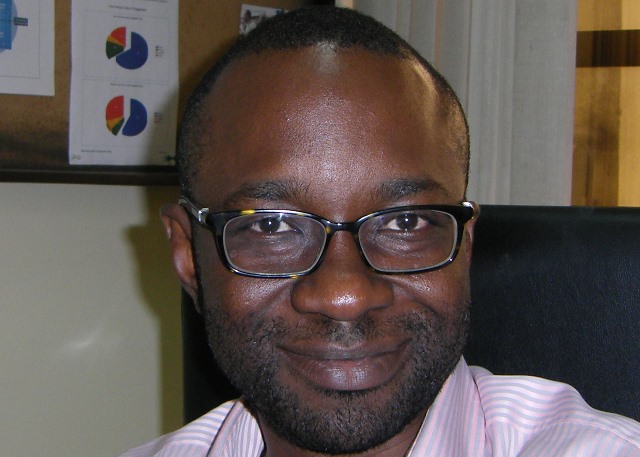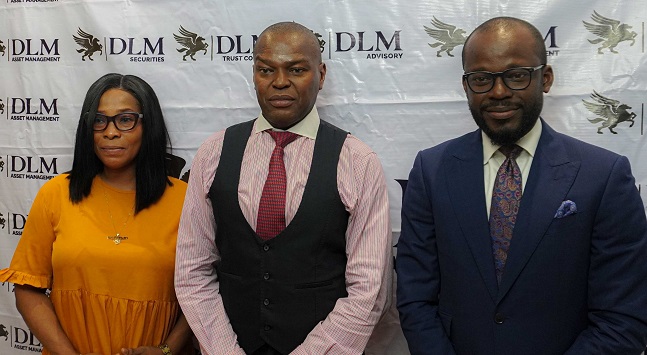E-Financial
Paga to Further Accelerate Growth with $10M Series B2 Investment

Paga, the leading mobile money company in Nigeria has announced that it has closed a $10 million growth financing led by the Global Innovation Fund.
Also participating in the round were existing investors Goodwell (managed by Alitheia Capital), Adlevo Capital, Omidyar Network and Unreasonable Capital. This new financing brings the total Paga has raised since inception in 2009 to $35 million.
The company commenced commercial operations in August 2012 and recently revealed that since then it has served 9 million customers and created over 10,000 jobs through its 17,000 agents who hire staff to run their stores.
“GIF is proud to lead Paga’s Series B2 round,” said Alix Peterson Zwane, GIF’s CEO. “Paga’s mission of helping people ‘make life possible” aligns with our core mission of supporting entrepreneurs and innovators that seek to improve the lives of those living on less than $5 per day. I am pleased that GIF will help enable Paga’s next phase.”
Nigeria is one of the fastest growing emerging markets in the world, and the biggest economy in Africa with $405 billion GDP.
Nigeria currently has a population of 186 million but is expected to become the 3rd largest country in the world (behind India and China) by 2050 with 411 million people. In Nigeria today, over 100 million adults find it difficult to transfer or leverage money for basic human needs.
This problem is one that exists even for those that are banked, and is something Paga’s team is passionate about solving.
The growth financing announced today will enable Paga further scale its business in Nigeria to drive the growth of Paga’s mobile wallet and agent network, and explore expansion opportunities in other markets where similar problems exist.
“Our belief in Paga as an effective platform to drive financial inclusion is unwavering,” says ‘Tokunboh Ishmael, Managing Partner at Alitheia Capital, “Paga has shown solid progress, and alongside other investments in our portfolio has played a huge role in our ability to demonstrate that enabling access to essential services for the broad population has both significant financial and developmental impact.”
Paga’s massive transformative purpose is “To make it simple for one billion people to access and use money.” With a nationwide network of 17,000 agents and more than 9 million users accessing funds in Nigeria, Paga is making strides by enabling efficient digital payments and building successful societies.
This has translated to over 57 million transactions processed worth approximately $3.6 billion, a business that is profitable and growing at 110% compounded annual growth rate (2016-2018).
“At Paga, we are building an ecosystem that enables people to digitally send and receive money, and creating simple financial access for everyone,” explains Tayo Oviosu, “We do not seek to be a bank, but rather to partner with banks and financial institutions in the markets we operate.
“We are proud to welcome the Global Innovation Fund as a partner on our journey. We were attracted to them because of their global focus, network to help us achieve our ambition and a clear alignment of values.
“It is also fantastic that our existing investors remain committed to our strategy and are demonstrating that by their additional investments.”
Paga’s mission is strengthened by the recent release of Paga’s new money transfer app that will drive use of the Paga wallet for person-to-person transfers and in-store payments.
In a country where digital financial services still leave much to be desired, Paga is staking a claim at being the Venmo of Nigeria. With cash still being king in emerging markets, and the general unreliability of POS services coupled with the sparsely located Banks and ATM’s, the company has created a viable solution for ease of payments: a simple app that allows you to send money to or request money from anyone only using their phone number or email address and a digital wallet to which you can link any debit card or bank account. In this sense, Paga is acting as a facilitator to provide a swift and reliable payment gateway for your already existing financial accounts.
This reinforces the idea that Paga is seeking to be the reliable access point to all relevant financial services for all people.
The core ethos of the Paga brand is “Making Life Possible”, so the decision to provide free money transfers was driven by the underlying desire to solve basic human needs and to ease the pain of not only person to person payments but payments for small to medium businesses, especially those trading through social media channels.
According to the 2018 Global Entrepreneurship Index, Nigeria ranks 12th in Africa for entrepreneurship, even with its uniquely challenging environment.
The high unemployment rate forces its citizens to be creative in order to thrive, and cultural barriers which sometimes prevent access to education and traditional workspaces means that a higher percentage of these entrepreneurs are female.
The company, which prides itself in aiding economic empowerment for less advantaged citizens, particularly in empowering women, notes that women are some of the highest performing agents.
Paga also prides itself on providing opportunities for small businesses to grow and create even more employment opportunities for others.
Nigeria is not the final frontier – Paga has already noted an important trend: the problem they are solving also exists in other markets. The platform is scalable and multi-currency, and the company has already begun considering opportunities in large countries such as Ethiopia, Mexico and the Philippines.
The growing tech ecosystem in Africa is garnering international notice, as evidenced by Mark Zuckerberg’s visit to Lagos and the opening of the Facebook tech hub; not too far from Paga’s office in an area that has been dubbed “Yabacon Valley”, and the exportation of African tech can be a big driver for the economy.
E-Financial
Sofri Microfinance Bank Rejig Digital Platforms for Better Customer Experience

Sofri microfinance bank plans a massive rollout of Point of Sale, PoS terminals for merchants and agency banking in the third quarter of this year.

This is coming against the backdrop of the banks revamp of its digital platforms to support better customer experience.
Paul Adebayo, managing director, Sofri Microfinance Bank, said the bank is technology and purpose-driven, with focus on financial inclusion and sustainability. As well with the determination of making banking simpler, inclusive, and impactful.
He said that the revamped mobile app features, faster onboarding, cleaner interface, real-time alerts, enhanced security and seamless loan applications.
“Our corporate internet banking Launched for SMEs and institutional clients features, secure payments, transfers, account management and enhances business banking experience.
“Laying the groundwork for greater reliability, product innovation and operational efficiency is our new core banking infrastructure. This change enables us to scale faster and serve customers better.
“Our Terminal Management System (TMS) improves the performance, uptime, and remote monitoring of our POS terminals. This ensures merchants and field agents enjoy better stability, quicker settlements, and stronger support,” he added.
On sustainability impact, Adebayo, added that Sofri Microfinance bank is embedding ESG principles into its lending and operational models — from offering green financing options, to supporting waste-to-wealth entrepreneurs, and making inclusive finance part of Nigeria’s circular economy.
Sofri is a trademark of Links Microfinance Limited (Links Mfb). Links Mfb is licensed and regulated by Central Bank of Nigeria (CBN) and deposits insured by the Nigeria Deposit Insurance Corporation (NDIC). Links Mfb is a member of DLM Capital Group, owners of DLM Asset Management as regulated by the Securities and Exchange Commission (SEC).
E-Financial
DLM Group Unveils Innovative Sovereign Bond Backed Composite Notes

Current market research has confirmed that buyside investors are increasingly focused on high-growth sectors such as small businesses and consumer lending— sectors that fuel both the demand and supply sides of the economy.

However, capital allocation to these areas requires robust risk mitigation frameworks to preserve principal and ensure returns that are not just economically viable but outpace inflation.
Against the backdrop that DLM Capital Group has developed an innovative solution – the Sovereign Bond Backed Composite Notes (SBCNs) to meet this critical economy needs.
According to Sonnie Babatunde Ayere, the Group CEO of DLM Capital Group, “We believe that the consistent issuance of SBCNs by qualified entities will play a key role in de-risking corporate bond portfolios.
“By blending sovereign-backed security with enhanced yield exposure, portfolio managers gain a rare opportunity to simultaneously increase portfolio safety and performance”.
The first of its kind fixed income product combines the security of direct sovereign bond-backed principal protection, such as FGN Bonds, with the enhanced yield potential of corporate and consumer lending cash flows. This hybrid structure, the first of its kind in the local market, merges public-sector credit safety with private-sector income generation.
The instrument is designed as such that the private sector credit tranche will be secured by the FGN-bonds, which will be the senior tranche.
The N30 billion Sovereign Bond Backed Composite Notes issued by DLM Funding SPV Plc is being packaged as a AAA-rated note. With a held-to-maturity yield of 49.9 percent, the notes are designed to be attractive to institutional investors seeking a balance between capital preservation and superior returns.
Sonnie Babatunde Ayere, noted about the SBCN, “For asset managers, it enhances portfolio quality, improves credit profiles, supports diversification, and delivers competitive returns.
In a media parley describing the instrument, Ayere highlighted the role of the instrument in driving credit expansion to the underserved private sector. He highlighted how the note could help drive institutional capital into sectors that were previously considered too risky.
“By channeling domestic capital into these critical but underserved sectors without exposing investors to excessive risk, it becomes possible to mobilize funding for parts of the economy that have long been neglected.” He added.
E-Financial
Fidelity MD,Onyeali-Ikpe Champions Lifelong Learning and Sisterhood for Women’s Career Growth

Dr. Nneka Onyeali-Ikpe, Managing Director and Chief Executive Officer of Fidelity Bank Plc, has encouraged women professionals to embrace continuous learning, courage, and collaboration as key habits for achieving long-term career success and breaking through professional barriers.

Managing Director and Chief Executive Officer of Fidelity Bank Plc, Dr. Nneka Onyeali-Ikpe, OON, (Middle) flanked by participants of a Women’s Roundtable themed, “Mentorship with Dr. Nneka Onyeali-Ikpe” hosted by the bank over the weekend at the Fidelity SME Hub, Gbagada, Lagos recently.
She gave the charge during a Women’s Roundtable hosted by the bank over the weekend at the Fidelity SME Hub in Gbagada, Lagos. Themed “Mentorship with Dr. Nneka Onyeali-Ikpe”, the event drew female professionals from various sectors and was held under the Recognition and Networking arm of the bank’s HerFidelity Proposition—a flagship initiative designed to empower women entrepreneurs and professionals across Nigeria.
Explaining the vision behind HerFidelity, Dr. Onyeali-Ikpe noted that the initiative was born out of a strong need to provide women with holistic support beyond access to finance.
“In my engagements with women across different industries, I’ve seen first-hand that while talent and ambition abound, many still lack access to capital, skills development, health support, and networks,” she said.
“HerFidelity was created to bridge that gap by focusing on four key pillars: access to capital, capacity building, wellness for work-life balance, and entrepreneurship support. It’s one of the initiatives I’m most proud of, because when women thrive, communities prosper and economies flourish.”
The interactive mentorship session, held in a Q&A format, offered participants an opportunity to learn directly from the trailblazing CEO, who shared personal experiences and career insights.
Advising young women aspiring to leadership, she said: “Believe in yourself, be ready to work hard, and never shy away from taking smart risks. Seek out mentors, invest in meaningful relationships, and above all, collaborate—because no one truly succeeds alone.”
The event also featured fun competitions and giveaways, with attendees winning exciting gifts courtesy of Fidelity Bank.
Dr. Onyeali-Ikpe’s session left participants inspired, reinforcing Fidelity Bank’s position as a champion for gender empowerment and a leading supporter of women’s advancement in business and leadership.

 General News2 days ago
General News2 days agoNASRDA, Galaxy Space Firm Sign MoU on Satellite Connectivity

 Telecom2 days ago
Telecom2 days agoOver 1m Nigerians Reached through MTN Staff’s Digital and Community Outreach

 Telecom2 days ago
Telecom2 days agoMafab Gets 0724 Number Series, Launches Mcom 5G Brand

 News2 days ago
News2 days agoDBN Awards N13m in Grants to Tech Startups

 Telecom2 days ago
Telecom2 days agoNCC to Name, Shame Telecom Infrastructure Vandals

 News2 days ago
News2 days agoFCCPC Shuts France, Belgium, and Italy Visa Centres in Abuja Over Alleged Consumer Rights Violations

 Telecom2 days ago
Telecom2 days agoWSIS Review: Nigerian ICT Leaders Urged to Shape Global Digital Future

 E-Financial2 days ago
E-Financial2 days agoBank Customers Petition CBN over Illegal Deductions, Demand Action




























